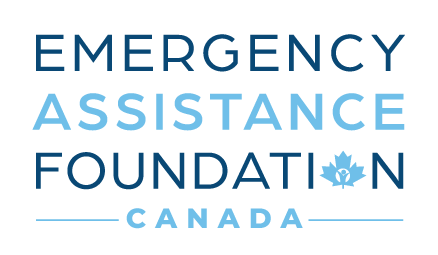
Basic Regulatory rules for administering an employee relief fund
November 19, 2018
Employee Relief Funds: Three Design Considerations
January 3, 2019Nonprofit compliance can be complicated business. That’s been true for as long as there has been a Section 501(c)(3) in the US tax code. That complexity has only gotten more burdensome since the states have stepped up their solicitation registration requirements and enforcement. For those organizations that operate in multiple states, it can be madness-inducing trying to keep it all straight.
Before. One thing that we used to count on was a fairly uniform definition of solicitation. Even if several states had different registration thresholds or criteria, the differences usually involved amounts of money raised or the purpose of the organization, not what solicitation meant. In its most simple and traditional definition, solicitation was the act of asking someone for a donation of money, services, or an in-kind gift. If this “ask” happened in one of the 41 state jurisdictions that require registration, then there’s a pretty good chance your nonprofit needed to register with that state. What’s happening now, however, is a complete redefinition of what constitutes a solicitation.
Now. The definition of solicitation is quickly changing to be synonymous with revenue generation. The majority of states are moving toward an enforcement model that virtually disregards source of revenue when determining registration requirements.
So, which revenue-generating activities are considered solicitations for registration purposes?
Most obvious. Revenue sources most closely association with traditional fundraising are certainly still considered a solicitation. These include fundraising events (such as golf tournaments, silent auctions, charity dinners, etc.), direct mail campaigns, or an email campaign.
Less obvious. Relatively few people would consider a donation that arises out of a personal relationship or a one-on-one conversation to be a solicitation. Most states disagree. Whether the interaction is spontaneous, or an intentional, strategic meeting for the specific purpose of asking that person for a donation, it is likely a solicitation by definition. Likewise, passive fundraising activity, like a donate-button on your website, is considered a solicitation. The good news about that last one is that most web donation scenarios are covered under the Charleston Principles safe harbor, at least until you receive a donation from it.
Least obvious. A few categories of revenue are ones that, in the past, haven’t typically been considered the result of solicitation activity. These include:
Unsolicited donations
Program revenue from the sale of products and/or services
Participation fees
Membership dues
Unfortunately, these activities can rarely be excluded from the solicitation definition anymore.
The new normal across the country for states that require charity registration is to consider all forms of revenue generation to be the result of solicitation. Why? We’ve spoken with a number of state charity regulators across the country, and it comes down to several factors:
- It’s easier for the states. Most state charity offices are overworked and understaffed. If every organization has to be separately evaluated to parse which activities are truly solicitation and which are not, you can imagine the time it would take. In addition, there is a lot of subjectivity involved in that approach. It’s simply easier to capture all revenue under the definition.
- The IRS isn’t watching as closely as it used to. The IRS is even more overworked and understaffed than the states these days. While that definitely does not give you license to skirt on federal compliance, the reality is that the IRS is struggling to keep up with nearly 1.5 million charities nationwide. Therefore, the states are picking up the slack…big time!
- Most nonprofit revenue is sourced from the public. This is really where it all comes down. Does it really matter if the dollar is a gift, a fee, or a sale, if it’s coming from the same individual? Increasingly, the states say, “No”. And, it makes sense. The state charity regulators have a responsibility to enforce state law, and to protect the donating public. The most consistent way to do that is to capture all revenue under the banner of solicitation and require charities to register and report annually. Their position is that all nonprofit revenue, no matter the source, is the result of either direct or indirect solicitation, even if it’s only a ticket sale to a children’s play.
Given all of this, it’s more important than ever to make sure your organization is compliant with state charity registrations. It’s not worth the risk to operate in a gray area.
About the Author: Greg McRay, EA
Greg McRay is the founder and CEO of The Foundation Group. He is registered with the IRS as an Enrolled Agent and specializes in 501(c)(3) and other tax exemption issues.
Original Article can be found on the Foundation Group’s Website, published on April 17, 2018.




